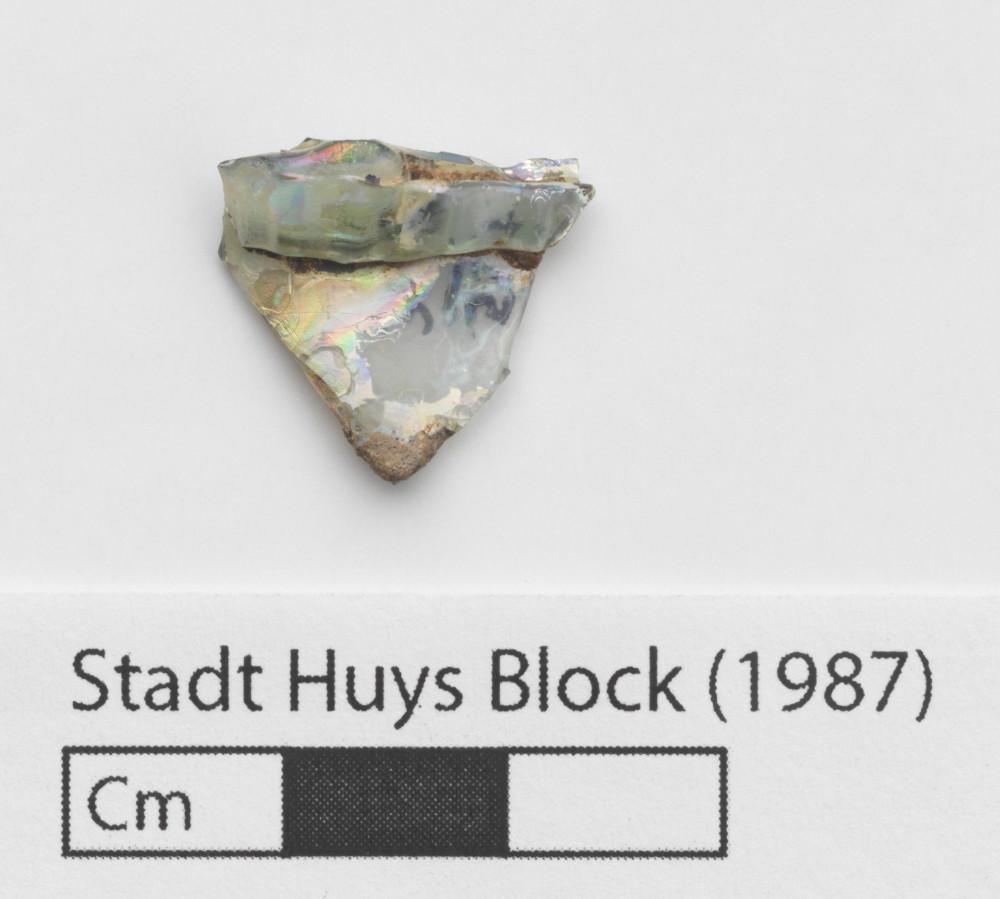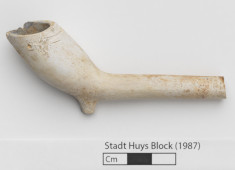Introduction: Lots 8, 9, and 15 are modern designations for adjacent parcels of land that were owned together and used as a single property until the early 1830's. Excavations produced important discoveries like that of the Colonial-era Lovelace Tavern, proving that significant archaeological resources could still exist in urban spaces. Project archaeologists were able to lobby for increased time and funds to continue their work on the strength of these finds, leading to additional discoveries. In all, the project provided considerable information about the history of New York City and its inhabitants from the 17th to the 20th centuries.
Rationale: Test Cut T was an exploratory trench placed in the backyard of Lot 9 to assess the integrity of the stratigraphy underlaying a modern cement floor. Importantly, the excavations of the test cuts in the backyard of Lot 9 revealed that this area was the most archaeologically intact on the entire project. This means that many archaeological features, artifacts, and intact stratigraphical layers were discovered during testing. Therefore, Test Cut T is an important resource for understanding the historical development of Lot 9.
Results: Two lenses of unknown origin, context, purpose, or depositional date were found in the lower portion of the builder's trench used for the construction of the ca. 1829 commercial building on Lot 9. The lower portion dates to the 18th century and was uncovered by 19th century workers during construction. These two lenses could possibly be the result of redeposition or disturbance of earlier deposits by 18th- or 19- century construction activities. The majority of the artifacts recovered from this lens date to the late-17th to very early-18th century, though some late-18th and early-19th century artifacts are mixed in.
Lot 9, Test Cut T, Stratum XII, Level A
-
Collection method
Trowel, Screen (1/4-inch mesh). Natural Level.
-
Soil description
Medium Brown Sandy Silt
-
Munsell
10YR 5/6



